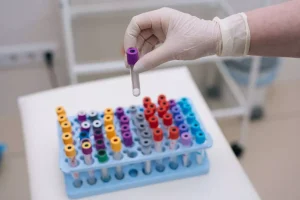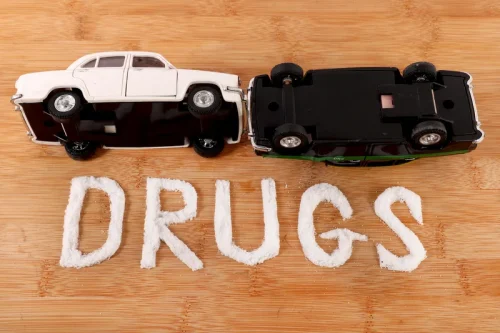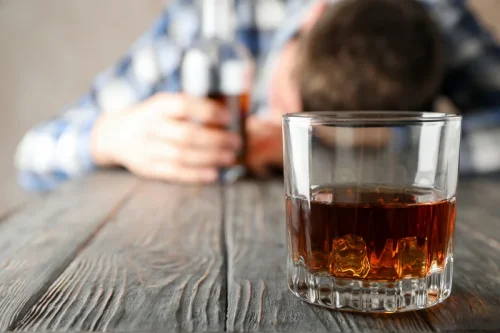
Remember, if you have an alcohol allergy, it’s crucial to be aware of these potential complications and seek prompt medical attention if you experience severe symptoms. The primary difference between an alcohol allergy and an alcohol intolerance is the reaction ethanol allergy symptoms each produces. Alcohol allergies are caused by the immune system and intolerance is a reaction from the digestive system. Usually, an alcohol intolerance is a reaction to one of the ingredients in alcohol and not necessarily the ethanol itself.
When to speak with a doctor
In people with alcohol intolerance, a genetic mutation (change) makes ALDH2 less active or inactive. As a result, your body can’t convert acetaldehyde to acetic acid. Acetaldehyde starts to build up in your blood and tissues, causing symptoms.

Risk factors

In the most severe cases, a food or drink allergy can lead to anaphylaxis. If you have any of these symptoms, you should seek emergency medical care. The only way to prevent alcohol intolerance symptoms is to avoid alcohol completely.

Medical professional hub
- Avoiding cross-contact between a safe food and a food allergen is just as important as avoiding the allergen itself.
- Submit your number to receive a call today from a treatment provider.
- Anaphylaxis is a severe, life-threatening allergic reaction that affects multiple systems of the body.
- Alcohol allergies are rare, but if you do have one, it doesn’t take much to trigger a reaction.
- Often, people who are allergic to wheat are also allergic to barley, though that’s not always the case.
One study even found that you can give patients a placebo, tell them it’s a placebo, and it will still decrease their symptoms. The only way to avoid alcohol intolerance symptoms or an allergic reaction is to avoid alcohol or the particular beverage or ingredients that cause the problem. For a minor reaction, over-the-counter or prescription antihistamines may help reduce symptoms, such as itching or hives. However, antihistamines can’t treat a serious allergic reaction. You may not need to see a doctor if you have a mild intolerance to alcohol or something else in alcoholic beverages.
Can you suddenly develop an allergy to alcohol?
In a few cases, alcohol intolerance can be a sign of a more serious problem. If you think you have it, talk with your doctor and find out what’s causing it. Drop the tick in rubbing alcohol, and keep it for a few months to identify it in case any disease symptoms develop. In addition to avoiding red meat and dairy, he also has to be careful with mammalian derivatives used in products like gel caps and lanolin lotions.
Symptoms can include skin flushing, hives, nausea, vomiting, rapid heartbeat, or shortness of breath. This is typically due to intolerance to certain ingredients in alcohol, not the alcohol itself. An allergic reaction to food usually happens within a couple of hours.
How can you treat alcohol allergy?
- To keep your risk as low as possible, avoid alcohol entirely.
- Occasionally, a doctor may ask a person to consume alcohol in a medical setting and observe any reactions or symptoms.
- The highest prevalence (35-40 percent) is among in people of East Asian descent.
More likely, you’re allergic to or sensitive to a particular ingredient in that beer. Similarly, he said he’s treated people who were actually sensitive to barley, hops, or malt rather than beer, or to fruits mixed into cocktails rather than the alcohol itself. The main treatment of both conditions is avoiding alcohol or the ingredients that trigger the allergy. For allergic reactions, taking an antihistamine like Benadryl for a mild to moderate reaction can help. It may seem unfair that an inherited condition keeps you from enjoying the occasional glass of wine or beer.
This can result in symptoms resembling allergic reactions, including headaches, nasal congestion, skin flushing, and gastrointestinal discomfort. If someone believes they have an alcohol allergy or intolerance, they should stop drinking alcoholic drinks and visit their healthcare provider for testing and advice. While just about anything can trigger an allergic reaction, some things (like a bee sting, peanuts, and certain foods) are more likely to trigger allergic reactions than others. If you have symptoms after drinking beer, but not after drinking wine or other alcoholic beverages, it’s not alcohol intolerance.
Spotting the signs of an adverse reaction to alcohol

Individuals with a family history of allergies or a personal history of allergic reactions are more likely to develop an alcohol allergy. People with a known alcohol allergy should carry a medical alert card or wear a medical alert bracelet. More severe symptoms, akin to those seen in a drug allergy, can include dizziness, low blood pressure, and loss of consciousness. If you experience these severe symptoms, seek immediate medical attention.

